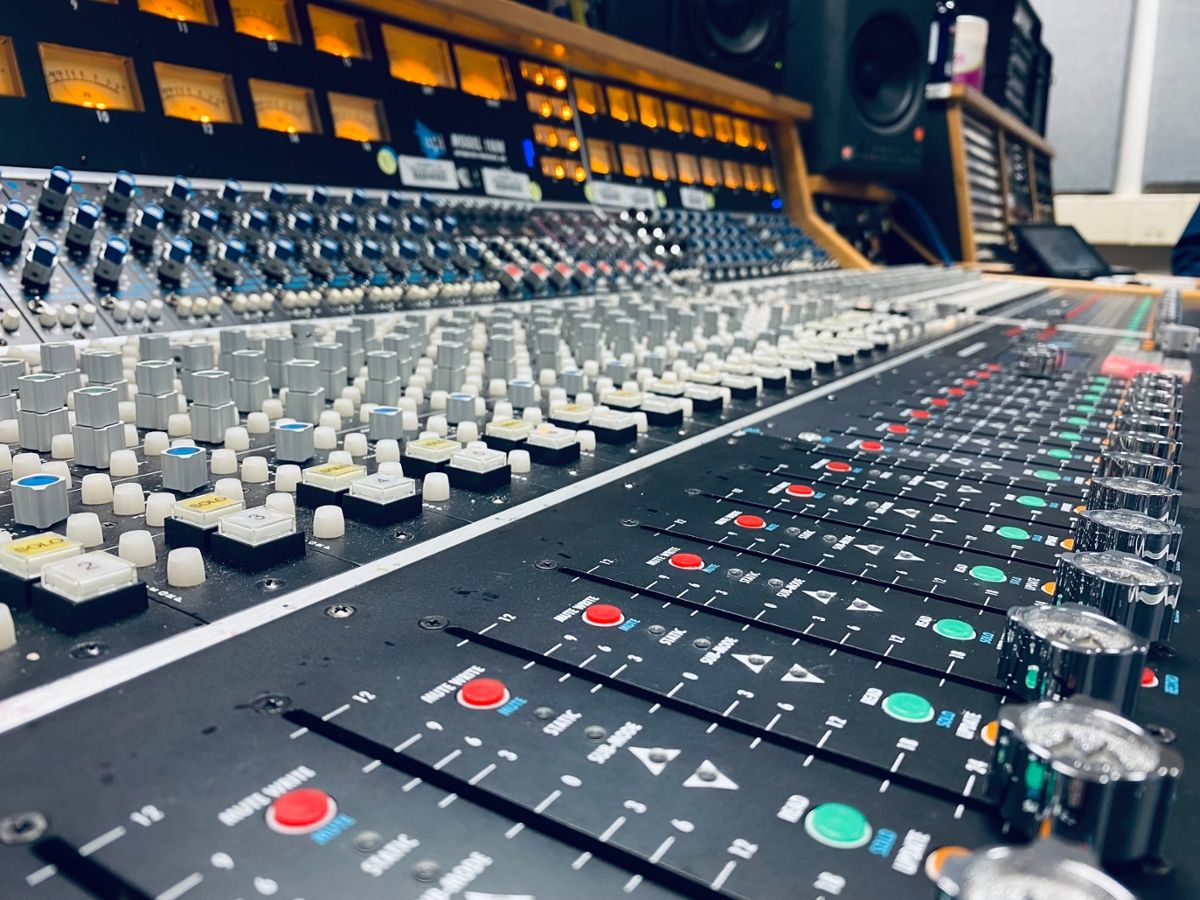
Music Technology
Associate of Science Degree (2206)
Accessibility Options: Skip to Content Skip to Search Skip to Footer Institutional Accessibility Open Alternative Formats for this page
Accessibility Options: Skip to Content Skip to Search Skip to Footer Institutional Accessibility Open Alternative Formats for this page

Associate of Science Degree (2206)
Master your own recordings, engineer sound for a famous pop artist, or work the soundboard at an exciting live venue through study in the AS program in Music Technology at Broward College.
Learn with industry-standard equipment in our sound studios and labs. Work with professionals in the field as you begin your recording production career.
Students who participate in the Music Technology program will enter an excellent environment for creative development, experimental learning, creative thinking and hands on experience. Students will be able to learn on the most current recording and editing equipment and gain a first-hand understanding of the cutting-edge innovations that exist in the Music Technology field.
The Music Technology program offers:
Here are some examples of career titles available to those with the skills and abilities of music technology majors.
Audio Director: Also called Lead Audio Designer or Senior Sound Designer, an Audio Director works in the fast-paced world of video gaming. Like a Sound Designer in a movie, the Audio Director plans, organizes, and supervises the creation of all video game audio, working with developers and designers. They are responsible for the entire soundtrack of a video game, which ranges from sound effects and music to dialogue and background score.
Audio Engineer
Audio and Lighting Technician
Audio Visual Specialist
Boom Operator
Broadcast Technician
Concert Technician
Digital Audio Editor
Director of Audio/Visual Events
Mastering Engineer
Multimedia Specialist
Music Director
Music Editor: The Music Editor is responsible for editing and syncing the music used in films and television with the action unfolding on screen. As the Music Editor for a film or television show, you’ll oversee creative, technical, and logistical aspects of composing and placing music. You’ll help to determine where and when music will be used in the film or show, coordinate changes with the composer, and even make temporary soundtracks to help with test screenings.
Music Producer
Live Sound Engineer: Working as a Live Sound Engineer is vastly different than working with sound on set or in a studio. Leaving behind the controlled acoustic environment of a studio, where mistakes can be easily corrected, a Live Sound Engineer works their magic in the moment. A venue’s size, shape, material, and in-house technical equipment can all create unique challenges for achieving quality sound production delivered to a live audience. Once gear has been loaded in and set up, the Live Sound Engineer runs a sound check to adjust volume, balance, and EQ levels, generally several hours before the show begins. A good Live Sound Engineer combines excellent technical and musical knowledge with practical experience gained through an internship or apprenticeship.
Mixing Engineer: The role of the Mixing Engineer is crucial. Using both technical experience and musical artistry, they assemble the various parts of a multitrack recording into a stereo track, leaving a huge impact on the sound of a song, album, or soundtrack. The mix can make or break a piece of music, transforming it from something rough and muddy to a polished final product, sparkling with clarity and purpose. Once they receive individual tracks from the Recording Engineer following a recording session, the Mixing Engineer focuses on three main tasks: manipulating the volume levels to emphasize the elements in each section, enhancing the character of each track with the aid of processors, and adding effects such as delay and reverb.
Production Sound Mixer
Radio Broadcast Engineer
Recording Artist
Recording Engineer: The Recording Engineer manages all of the technical elements of a recording session and is responsible for the overall sound of an album or a song. You’ll work closely with the artist or group and the producer to ensure that the final sound meets the vision of the creative team. Recording Engineers don’t just work on music albums; they also play a role in film and video post-production, advertising, and broadcasting, The Recording Engineer often works with each instrument separately, either directly as the producer or collaborating with a production team to operate the soundboard.
Sound Designer
Sound Editor: The Sound Editor is responsible for the final, polished sound in television, movies, and other productions. The Sound Editor selects, fine-tunes, and puts together three primary components of the finished sound into an integrated soundtrack: recorded dialogue, music, and sound effects. Working frame-by-frame once filming is complete, the Sound Editor begins the meticulous work of building a final soundtrack. Sound Editors select the best sound pieces to accompany each frame of the picture and manipulate them as needed, generally starting with sound effects and dialogue, then weaving in musical accompaniment.
Sound Mixer
Sound Technician
Studio Engineer
Studio Manager
Broward College is accredited by the National Association of Schools of Music (NASM).
Sunday: Closed
Monday - Thursday: 9 a.m. - 5 p.m.
Friday: 9 a.m. - 3 p.m.
Saturday: Closed
We invite you to support Student Scholarships by making a donation.
This site is best viewed in a modern browser and is not compatible with Internet Explorer (IE). Please use another browser, such Chrome, Safari, Edge, or Firefox for the best user experience.